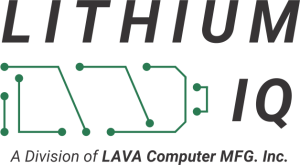
EU Introduces Energy Efficiency Standards for Smartphones and Tablets
By: Leonid Shalashnyi
2 Min Read
July 3, 2025
New measures aim to reduce energy consumption and extend device lifespan across the European Union
What’s New
The European Union has officially added smartphones and tablets to its list of products subject to energy efficiency requirements, starting from June 2025. The new regulations mandate manufacturers to ensure minimum energy performance, longer battery durability, and improved device repairability. The announcement was made via the EU’s Energy-Efficient Products portal and marks a significant step in reducing the carbon footprint of mobile electronics.
The measures include standardized testing for battery endurance, minimum update commitments, and easier access to spare parts. Smartphones must now meet benchmarks for battery health after 800 full charge cycles and provide a specific battery health check via software. Tablets are also required to include features like battery saver mode to optimize energy use.
These new obligations form part of the EU’s Ecodesign Directive, aimed at lowering energy consumption and reducing e-waste. Manufacturers who want to sell in the EU must comply or risk being excluded from one of the world’s largest tech markets.
Why It Matters
This is a long-awaited but critical move from EU regulators. For years, consumer electronics have lacked transparency around battery health and energy efficiency, pushing users toward frequent device replacements. Now, with mandatory performance and repairability thresholds, the burden shifts back to manufacturers — and that’s a good thing.
Standardized tools like battery health check indicators and regulated state of charge monitoring empower users to make informed decisions. These changes also indirectly pressure tech companies to move away from sealed-in battery designs and toward longer-lasting, repairable devices. For consumers, this could mean fewer expensive upgrades and a reduced environmental footprint.
But implementation will be key. Independent auditing, consumer education, and enforcement must follow to make sure this isn’t just symbolic. The long-term impact on product design, pricing, and global tech policy may be substantial — particularly if non-EU markets adopt similar rules.
Charge Smarter, Waste Less
With regulations prioritizing battery longevity and battery saver mode features, products like Lithium-IQ Casual can help users comply with emerging energy-use expectations even before manufacturers catch up. By limiting state of charge and protecting devices from unnecessary overcharging, Lithium-IQ’s solution enhances battery care in a way that aligns perfectly with the EU’s sustainability vision — helping users keep devices longer and reduce waste.
The EU’s new regulations for smartphones and tablets aim to enforce energy efficiency and improve battery health standards. Tools like Lithium-IQ Casual can help users meet these goals today by optimizing battery use and preventing premature wear.
